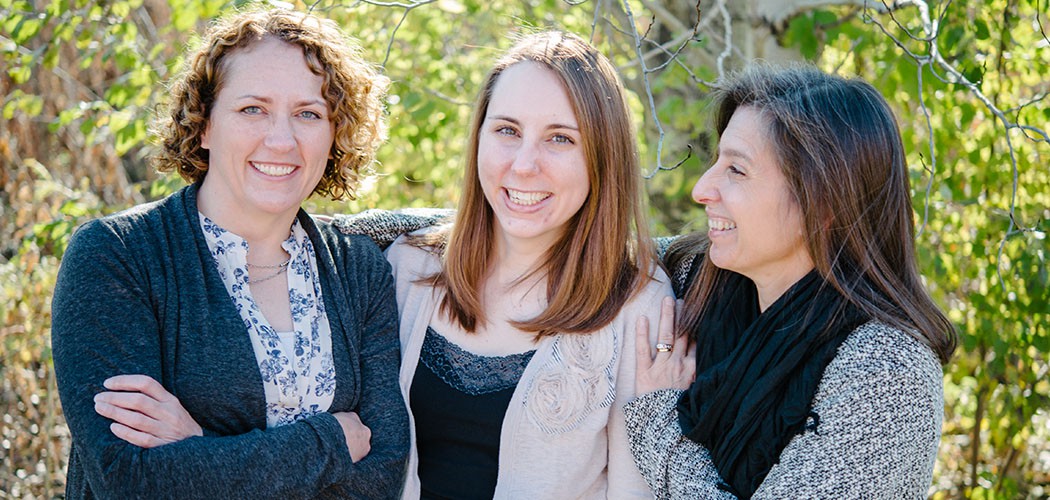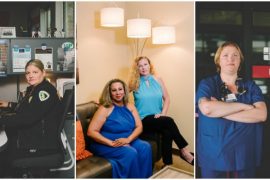KATE SAMPLE, KATHERINE O’ROURKE, MARY LANDRY
TREATING UNDERSERVED WOMEN, SHARING THE HEALTHWatching one of her ER patients quickly die from a very preventable cancer, OB/GYN resident Katherine O’Rourke asked Dr. Mary Landry where uninsured women go in Madison for gynecologic outpatient procedures. Both quickly realized it was an unmet need and created their own nonprofit clinic, Share the Health, which provides gynecologic specialty care to underserved women at no cost.
“It’s so amazing to see what can be accomplished if we all just chip in a little bit,” says Dr. Kate Sample of Madison Women’s Health, whose partners agreed to house the once-a-month, after hours clinic. Sample and her staff volunteer at every clinic. “I have never been more proud to work somewhere than when we have worked Share the Health together,” she says.
Landry, O’Rourke and Sample appreciate the combined effort from area doctors and medical students in volunteering time, UW Health for providing ultrasounds and pathology and Meriter for assisting with medical records.
Funding cuts that limited Planned Parenthood to providing only routine pap smears left uninsured women with abnormal test results no place to get follow-up care. That’s where Share the Health comes in, by providing colposcopy—the diagnostic testing that follows an abnormal pap, in addition to any surgical procedures and medication necessary to treat these women. In 2016, the clinic will add social workers to help patients navigate resources like the Affordable Care Act, although much of their clientele is ineligible for insurance because most are undocumented.
According to Landry, the need for advanced gynecologic outpatient procedures is increasing and it’s a community issue because women without insurance end up receiving very expensive care through the hospital systems, often at a late stage in their disease.
“Whereas if we could more appropriately care for these women at the stage of screening, or outpatient diagnostic treatments,” says Landry, “we would significantly reduce the cost not only to these individual women and their families but to our community as well as to our health system.”
O’Rourke remembers the first night they saw patients at Share the Health and diagnosed cancer, and she thought of the initial ER patient who had sparked the idea for the clinic.
“It really hit me that this is someone that had a preventable cancer and died within six months, it’s awful when they don’t have access to care and have such significant consequences as a result of that…something that we can easily fix makes a big difference for their lives.”


